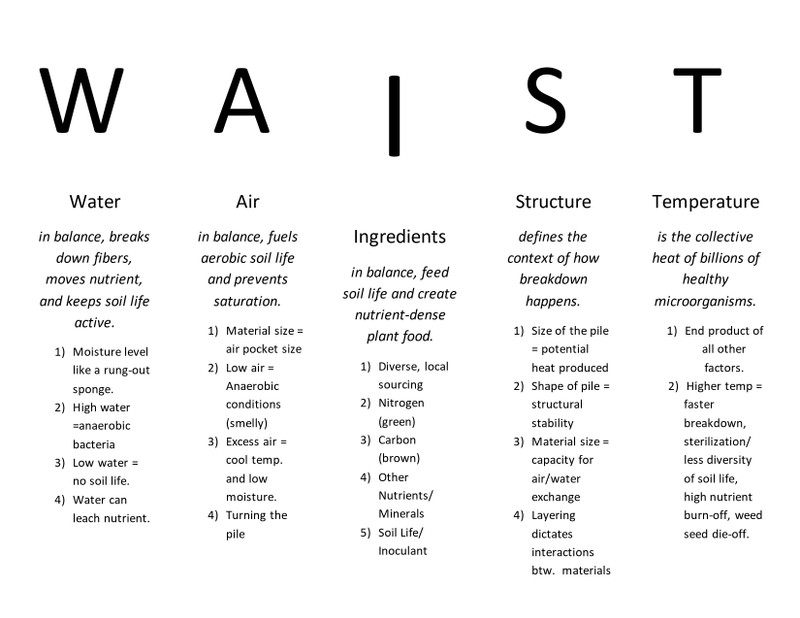A while back, while teaching students about the importance of building soil, I came up with this simple handout about making compost. It breaks down the key aspects to consider when tending to the decomposition process. Everything composts, but our attention to mechanics of it can make the difference between a mucky rotten heap and a humus-rich soil additive.
I wanted to make "W.A.S.T.E." the acronym, but settled on "W.A.I.S.T.". I figured it works well enough. I tell people to eat more fruits and veggies so you can make more compost, reduce your waste AND reduce your waist!

To create amazing soil through a compost pile, we each need to balance these natural factors (water, air, structure, temperature) with each other within the pile - and with the ingredients we use. Put differently, with compost, we're really just farming microorganisms, and to keep them healthy and diverse, we need to balance the above factors.
Each factor affects the other. For example, the more water we have in the pile, the less air, the lower the temperature, and the more compacted the structure (generally speaking). We can balance that excess in water by increasing the other factors. We can incorporate more air by turning the pile often. We can increase the porosity of the structure by adding larger materials, or change the ingredients to add slow-composting chucky materials like woodchips. We can even heat the pile up - mechanically or by building the size - so that the excess water is cooked off.
Each element needs to be in balance to have optimal breakdown. So much more to say here! However, this is simpler than it sounds, and we can do this easily by following an easy tried and true formula.
Simply layer together high carbon and high nitrogen materials to the size of at least 3' by 3', but preferably even bigger. More precisely, you're going for approximately 70% carbon-rich material (straw, chips, etc) and 30% nitrogen rich material (kitchen food waste). Once you've got the hang of this, you can start observing more closely these other elements that affect the composting process. And then manage them to get the perfect compost for your garden!
Enjoy the process,
sincerely,
Justin Michelson
